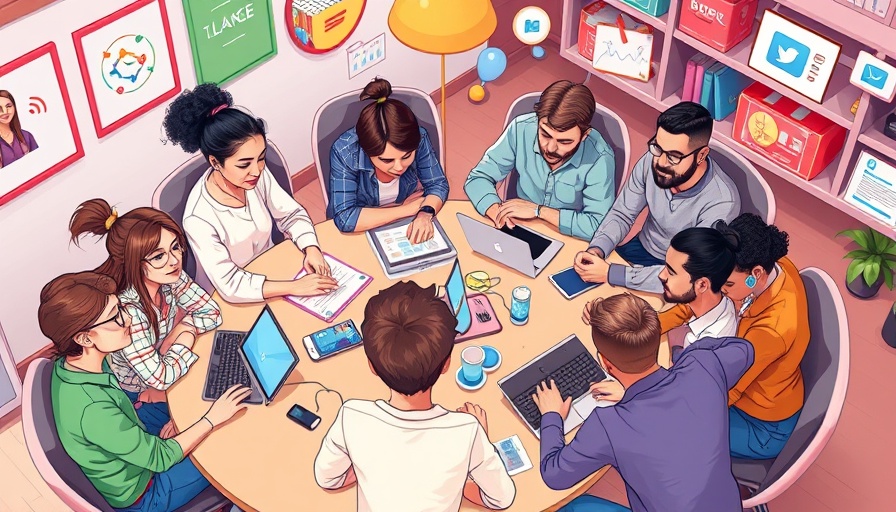
How AI Reshapes the Future of Work
The workforce landscape is experiencing a seismic shift driven by rapid advancements in artificial intelligence (AI). Recent estimates suggest that up to 400 million jobs could be automated by 2030. This impending change raises critical questions about job security and the necessary skills for the future workplace. As companies like Meta, Workday, and DBS prioritize AI development, they are simultaneously downsizing their workforce, leaving many employees uncertain about their career paths.
Reskilling: A Critical Requirement
To navigate these changes, reskilling has emerged as a priority for over 85% of employers, according to the World Economic Forum. Reskilling not only equips employees with new competencies but also enhances workplace morale and retention rates. Companies that invest in their workforce can cultivate a more adaptable and skilled labor force, ready to meet the challenges posed by AI.
The Inefficiencies of Traditional Approaches
However, conventional reskilling strategies can be arduous and time-consuming, with some organizations taking up to 24 months to launch a single program. This delay can render training irrelevant as job requirements evolve. Consequently, many companies revert their focus to immediate operational needs and sideline training initiatives. A survey indicated that only 7% of chief HR officers are actively pursuing reskilling strategies to safeguard positions vulnerable to AI displacements.
Revolutionizing Reskilling with AI
The paradox is that AI can significantly streamline the reskilling process by automating administrative tasks related to training and development. From scheduling to tracking progress, AI reduces the burden on HR and Learning & Development (L&D) professionals. For instance, automation can increase enrollment rates in training programs and dramatically lower administrative workloads, allowing teams to redirect their efforts toward enhancing the content and delivery of training.
The Impact of Personalized Learning
AI-powered adaptive learning technologies are paving the way for tailored educational experiences. By providing real-time feedback and personalized resources, AI can help individuals master new skills more efficiently. This advancement is crucial as it mimics one-on-one tutoring, traditionally associated with superior educational outcomes, making it feasible for organizations to offer quality training at scale.
Long-Term Consequences of Ignoring Reskilling
Failing to prioritize reskilling could lead to drastic consequences not only for employees—such as job dissatisfaction and stagnation—but also for employers. Organizations perceived to neglect employee development may struggle to attract and retain talent. In an environment where 48% of American workers indicate they would change jobs for better training opportunities, focusing on reskilling can enhance workplace satisfaction and loyalty.
Partnerships as a Solution to Upskilling
To effectively address the skills gap exacerbated by technological progress, collaboration between the public and private sectors is vital. Initiatives that bring together employers, educational institutions, and government entities can create more inclusive training programs that serve a more diverse workforce. Cisco's Networking Academy, which spans 191 countries, exemplifies how partnerships can effectively deliver necessary skills in technology and AI.
The Path Forward: Building a Skills-Based Society
As we transition to a skills-based economy, it's essential for all stakeholders—business leaders, educators, and policymakers—to forge a collective commitment to upskilling initiatives. This collaboration can help bridge the skills gap and ensure that all individuals have equal access to the knowledge required for success in an AI-enhanced world.
Conclusion: The Importance of Rapid Reskilling
The future of work necessitates a proactive approach to reskilling, facilitated by advancements in AI. By embracing innovative training solutions and prioritizing employee development, organizations can nurture a workforce capable of thriving amidst ongoing changes. Continuous learning will be the cornerstone of success, enabling companies and individuals alike to adapt and excel in this dynamic landscape.
 Add Row
Add Row  Add
Add 




Write A Comment